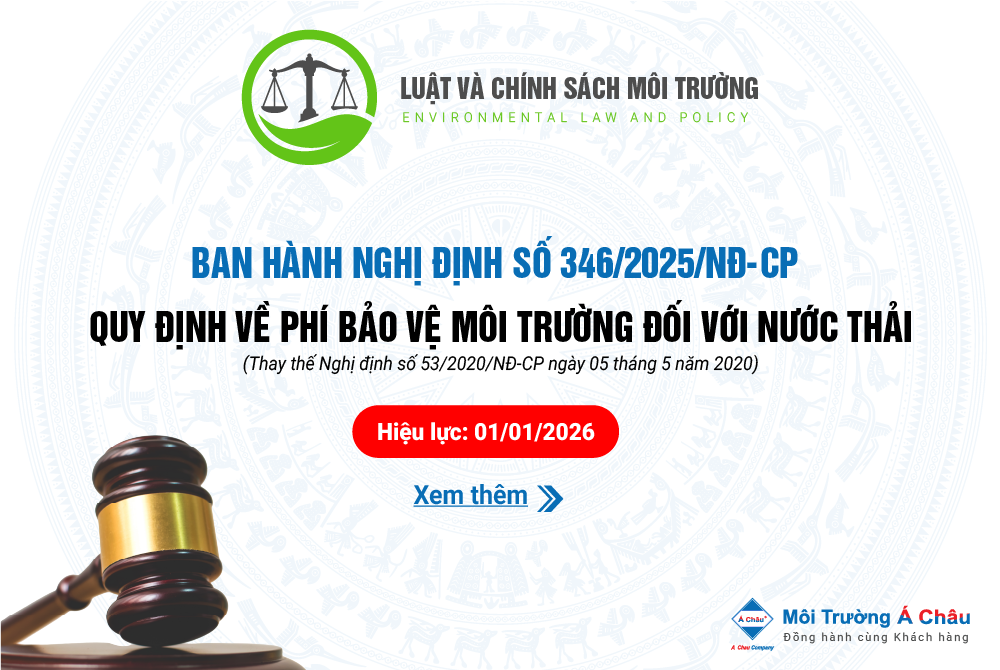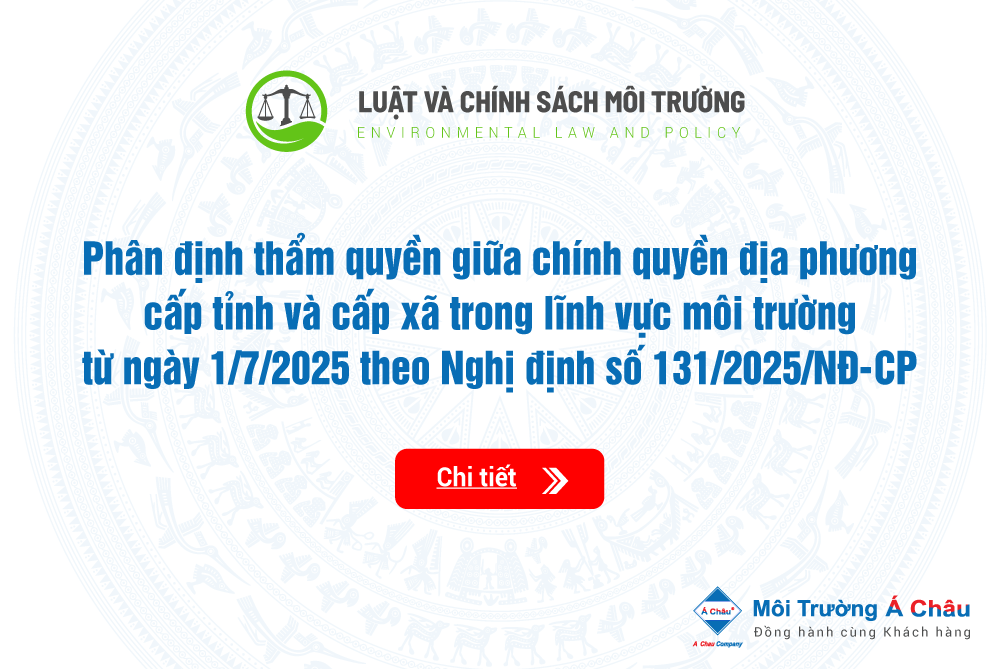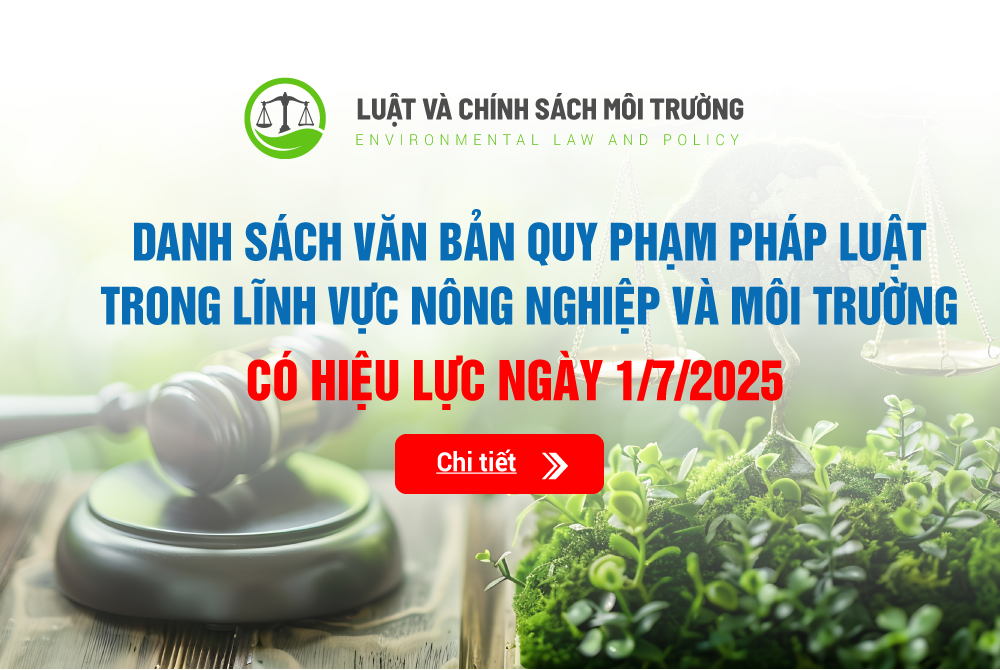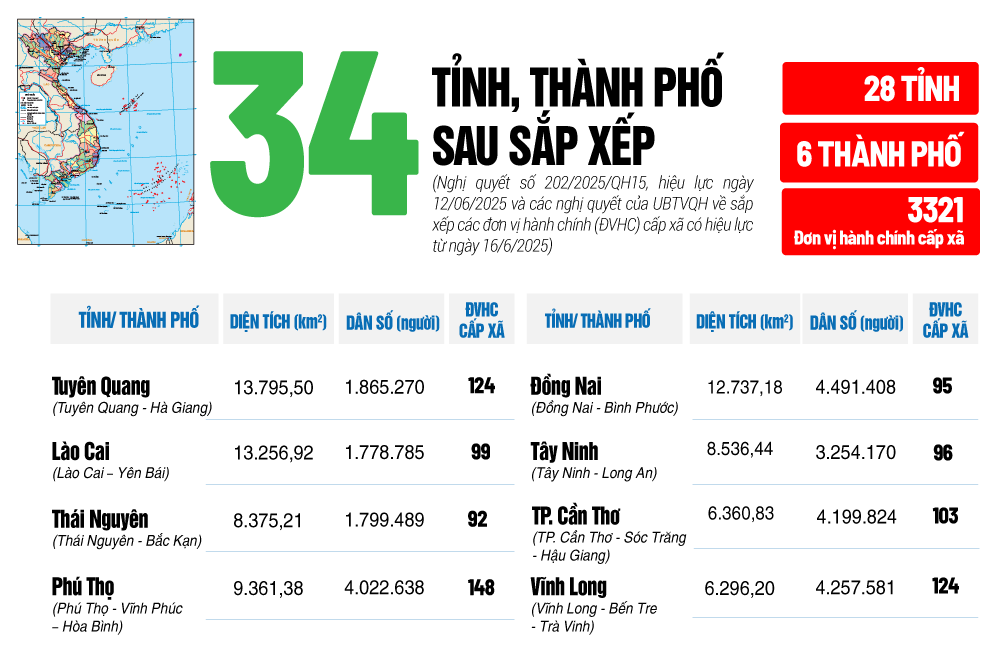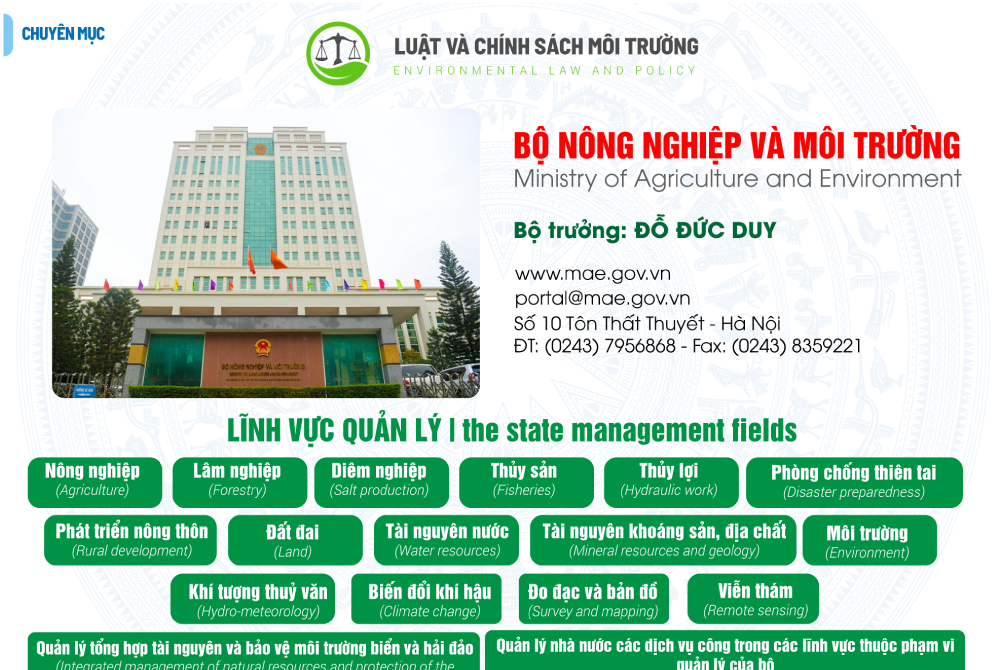Law on Water Resources 2023 passed by the National Assembly of the Socialist Republic of Vietnam
The National Assembly XV formally enacted Law on Water Resources 2023 on July 1, 2024. Vietnam's water resources are considered "too much, too short, and too dirty", prompting a significant step forward in mindset, strategy, and change in water resource management to safeguard them. Ensure that all citizens hold water resources as public assets, with the State acting as the owner and unified administration under the spirit of the 2013 Constitution.
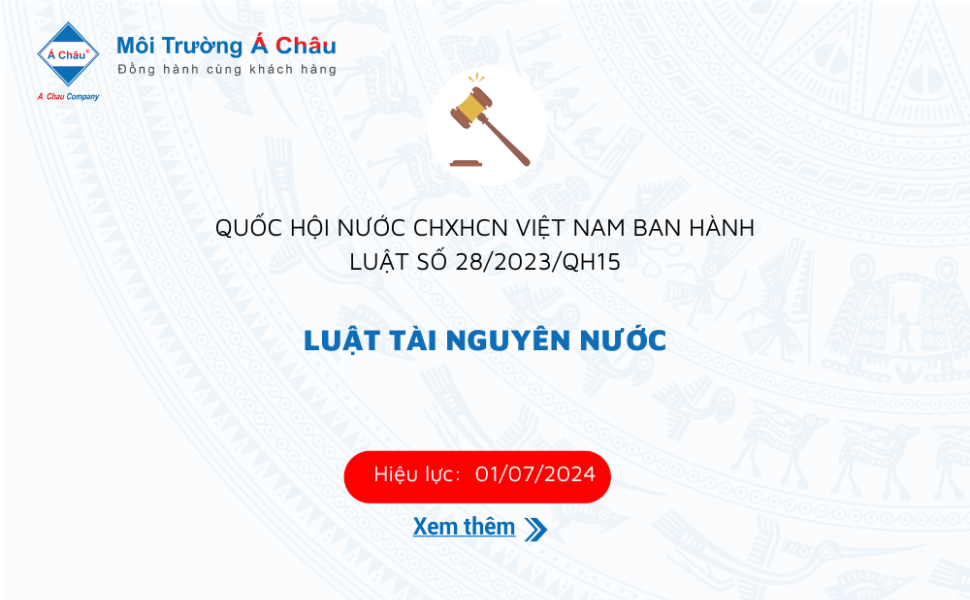
The National Assembly XV officially approved the Law on Water Resources No. 28/2023/QH15, which includes 10 Chapters and 86 Articles, with 468/472 (94.74%) unanimous votes. Adequate and effective water resource management by the State guarantees national water resource security. The National Assembly adopted 04 policy categories in Resolution No. 50/2022/QH15 dated June 13, 2022, including:
(1) Ensuring water source security;
(2) Socialization of the water industry;
(3) Water resources economics;
(4) Protect water resources and prevent and combat harmful effects caused by water.

National Assembly leaders and leaders of the Ministry of Natural Resources and Environment (MONRE) took memory photos when the 2023 Water Resources Law was passed (Figure: MONRE)
New points are recognised in the Law on Water Resources 2023.
1. Illegal filling of rivers, streams, canals and creeks is prohibited
In Article 8 of the Law Water Resources 2023, additional prohibited acts include:
- Illegally filling rivers, streams, and canals; Placing obstructions, obstacles, building architectural works, and illegally planting trees obstructs flood drainage and water circulation in rivers, streams, lakes, canals, and ditches, but no remedial measures exist.
- Illegal sludge, soil and other minerals exploitation in rivers, streams, canals, reservoirs, and water source protection corridors.
- Destroying water regulation and storage.
- Falsifying information and data on water resources.
- Construction of reservoirs, dams, water exploitation and use works contrary to water resources planning, provincial planning and other relevant planning.
2. Encourage organisations and individuals to participate in restoring the "Dead River."
Article 4 of the Law on Water Resources 2023 clearly states that the State encourages organisations and individuals to participate in basic investigation activities; protect and develop water resources; restore degraded, depleted and polluted water sources; and Prevent, combat and overcome harmful effects caused by water.
Organisations and individuals involved in restoring water resources that have been degraded, depleted, or polluted will benefit from incentives, support, exemptions, tax reductions, and allowances for water resource exploitation rights under point 4 of Article 34 of the Law on Water Resources 2023.
3. Preferential policies for water supply projects in remote areas
Clause 2, Article 4 of the Law on Water Resources 2023 stipulates that the State prioritises investment in finding, exploring, and exploiting water sources and has preferential policies for water exploitation investment projects to supply domestic water. Production for people in ethnic minority areas, mountainous areas, border areas, islands, and areas with difficult socio-economic conditions, especially freshwater scarcity; facilitate access to drinking water for people experiencing poverty, women, children, people with disabilities and other vulnerable people.
Organisations and individuals implementing the above projects will enjoy incentives, support, tax exemptions, reductions, and fees for granting rights to exploit water resources according to Clause 2, Article 73 of the Law on Water Resources 2023.
4. Policy on using circulating water
According to Clause 1, Article 58 of the Law on Water Resources, organisations and individuals exploiting and using water must implement measures to use water circularly, economically, and effectively, such as improving and rationalising the usage process. Water: Apply advanced techniques, technology, and equipment in water exploitation and use; Increase the ability to use circulating water and reuse water.
Article 59 of the new Law emphasises that the State encourages investment projects in production, business, and services that exploit and use water and discharge wastewater to have solutions to use circulating water and reuse wastewater immediately during the project construction phase.
Clause 1, Article 60 of the Law on Water Resources 2023 notes that organisations and individuals investing in circulating water use and water reuse are also entitled to preferential loans, exemptions, and reductions by tax.
6. Aquaculture at sea must register to exploit water resources
To strengthen the management of water resource exploitation activities, Clause 4, Article 54 of the Law on Water Resources 2023 has redefined cases that must be registered to exploit water resources, including:
- Exploitation of underground water sources on a small scale for use in cultural, religious, and belief activities; watering plants and washing roads for public purposes; fire prevention and fighting, serving national defence and security purposes;
- Exploiting surface water sources for use in agricultural production and aquaculture on a medium scale;
- Using self-flowing underground water in the mining pit to select ore at the pit or pumping water to drain the water that flows into the mining pit;
- Exploiting seawater for use in production, business, service, and aquaculture activities on land on a medium scale;
- Small and medium-sized rivers, streams, and canals to create sources, prevent salinity, and create landscapes.
7. 6 cases do not need to declare, register, or have a water exploitation license
Clause 2, Article 54 of the Law on Water Resources recognises 06 cases that do not require declaration, registration, or a license to exploit water resources, including:
- Exploiting water sources for use in cultural, religious and belief activities, watering plants and washing roads for public purposes;
- Exploiting seawater for use in salt production or exploiting seawater to serve socio-economic development on the sea and islands;
- Exploitation of water sources for use for fire prevention and fighting purposes, serving national defence and security purposes;
- Exploit water sources for domestic water supply during drought, water shortage, saltwater intrusion, pollution incidents, and epidemics announced by competent authorities according to regulations. Provisions of Law;
- Exploiting seawater for use in small-scale production, business, service and aquaculture activities on land;
- Exploiting surface water sources for cultural, religious and belief activities; watering plants and washing roads for public purposes; fire prevention and fighting; serving defence and security purposes on a small scale.
8. Cases of exemption or reduction of fees for granting water exploitation rights
Compared to the 2012 Law on Water Resources, the new Law has added cases where organisations and individuals are exempted or reduced from fees for granting water exploitation rights in Article 69. Specifically as follows:
a. Cases of water resource exploitation that do not require payment of fees for water resource exploitation rights include:
- Sea water exploitation;
- Exploitation of surface water and groundwater is subject to registration;
- Exploitation of surface water and underground water specified in Clauses 2 and 3, Article 54, such as household activities used for cultural, religious, and belief activities; watering plants and washing roads for public purposes; salt production; Fire prevention and fighting purposes, etc.
b. Cases of exemption or reduction of fees for granting rights to exploit water resources include:
- Water exploitation and use must reduce the figures and be used when requested by competent state agencies.
- Water exploitation to supply domestic water for national minority areas, women, children, people with disabilities, border areas, islands, water-scarce areas, areas with polluted water sources, severe degradation, saltwater intrusion, challenging areas;
- Exploiting, circulating and reusing water;
- Reservoir projects have additional tasks associated with adjusting and adding flood prevention capacity for the downstream compared to the duties of the approved reservoir project;
- The Vietnamese Government has guaranteed the water resource development under the Government Guarantee.
Please take a look at the Law on Water Resources 2023.
Source: Compiled by A Chau Environment



